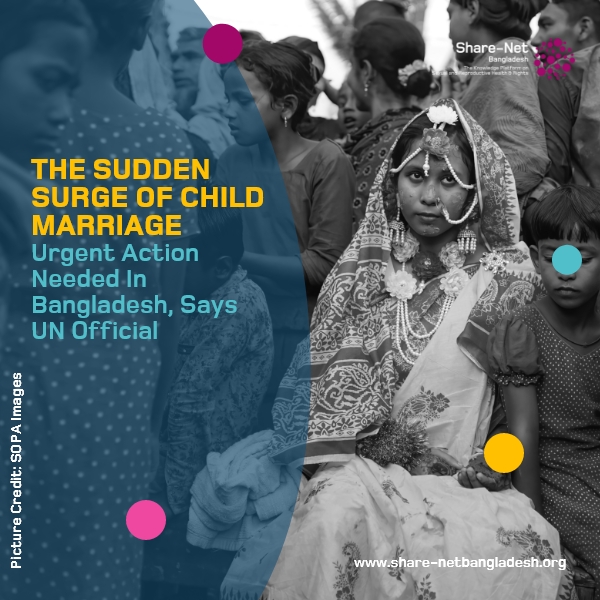The Sudden Surge of Child Marriage: Urgent Action Needed in Bangladesh, Says UN Official
“Take action to prevent child marriage,” urges UN Under-Secretary-General Dr. Natalia Kanem, highlighting the urgency of addressing this deeply troubling issue in Bangladesh. Dr. Kanem, who is also the executive director of the UN Population Fund (UNFPA), stressed the dire consequences of child marriage on girls’ health and overall well-being. “We have seen girls aged just 12 who are pregnant. This is deeply worrying, and society needs to realise it and take action in this regard,” she emphasised.
According to UN data, 51 percent of girls in Bangladesh are married before their 18th birthday, and of them, 15 percent are married before the age of 15. Additionally, at least four percent of boys are married before the age of 18. These alarming statistics underscore the urgent need for interventions that protect children’s rights and health. Child marriage not only violates girls’ rights but also poses severe risks to their sexual and reproductive health, making it a critical issue within the scope of Sexual and Reproductive Health and Rights (SRHR).
Dr. Kanem’s visit to Dhaka for a global dialogue on demographic diversity and sustainable development, marking the 30th anniversary of the 1994 International Conference on Population and Development (ICPD), brought renewed attention to the unfinished agenda of the ICPD. One of the key goals of ICPD is to end child marriage, which remains a significant challenge despite notable progress in women’s development and SRHR.
Investing in girls’ education is pivotal in the fight against child marriage. “The dividend comes when you invest in girls’ education. This will ultimately lead to multiple benefits in health, productivity, and income,” Dr. Kanem stated. Educated mothers are more likely to ensure better health and economic conditions for their families, breaking the cycle of poverty and improving future generations’ prospects.
Child marriage not only jeopardises young girls’ health by increasing the risk of early and dangerous pregnancies but also heightens their vulnerability to gender-based violence. Teaching young women about safe sexuality and delaying pregnancy is of critical importance. Dr. Kanem shared her experiences from the Santal community in Gaibandha, where UNFPA-trained midwives have significantly improved maternal health outcomes. Previously, only three percent of women used to seek facility-based deliveries, but this has now increased to 20 percent, demonstrating the positive impact of targeted interventions.
Despite these advancements, much work remains. In Bangladesh, 33 percent of deliveries still take place at home, posing significant health risks. Dr. Kanem emphasised the need for massive social awareness and the crucial role of media in advocating for change. “Bangladesh has leadership, but massive social awareness is required, and media can play a role here,” she noted.
Ending child marriage and improving SRHR in Bangladesh are essential steps towards achieving the Sustainable Development Goals (SDGs). It requires a concerted effort from all sectors of society to protect children’s rights, ensure their health, and provide them with opportunities for a better future.
Source: The Daily Star
Picture Credit: SOPA Images

